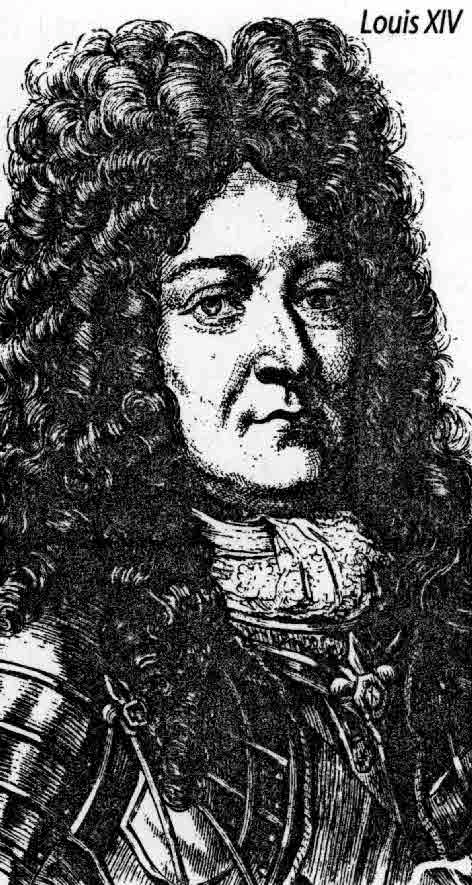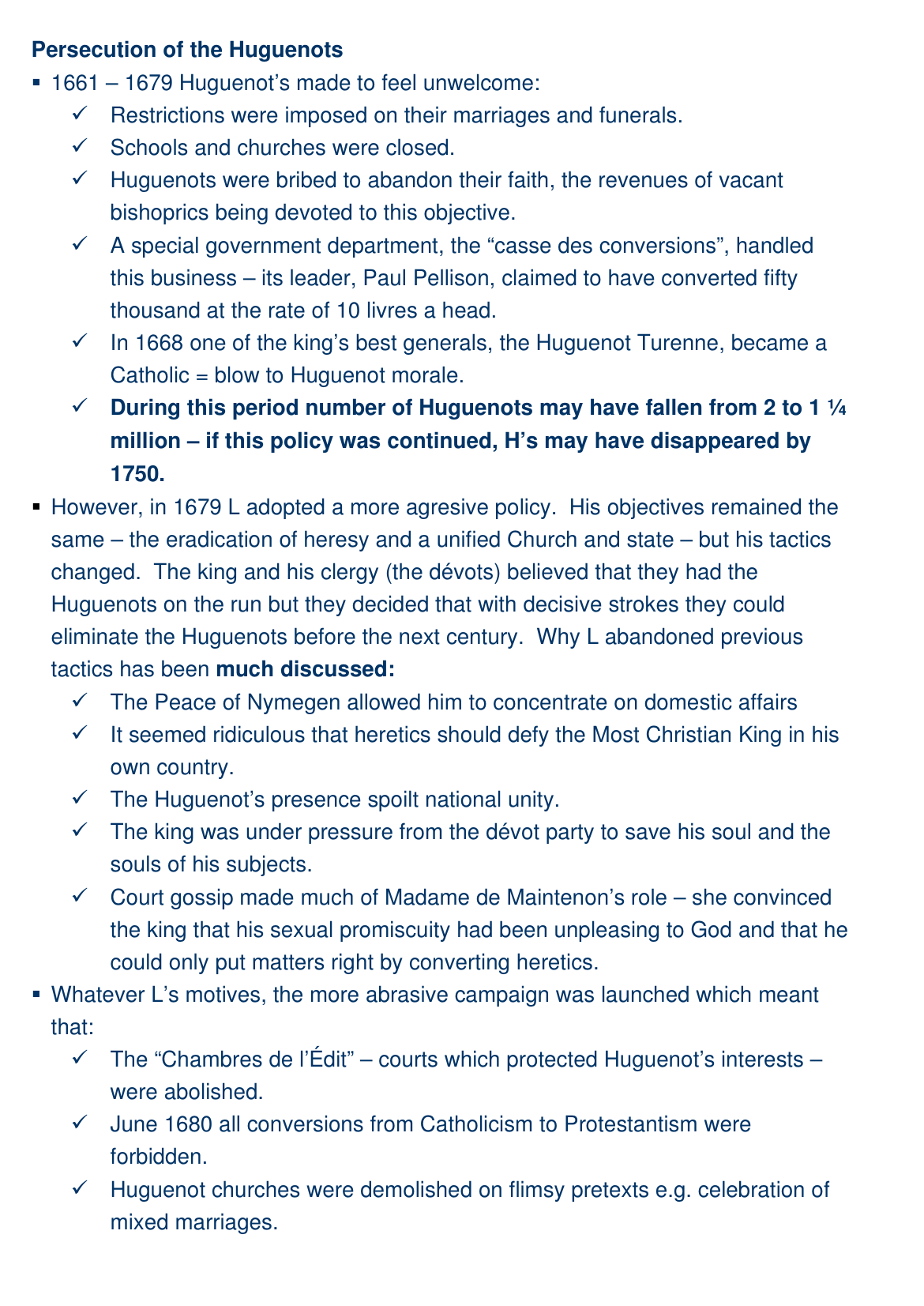Les politiques de Louis XIV
Publié le 03/06/2014

Extrait du document


« Persecution of the Huguenots 1661 – 1679 Huguenot’s made to feel unwelcome: Restrictions were imposed on their marriages and funerals. Schools and churches were closed. Huguenots were bribed to abandon their faith, the revenues of vacant bishoprics being devoted to this objective. A special government department, the “casse des conversions”, handled this business – its leader, Paul Pellison, claimed to have converted fifty thousand at the rate of 10 livres a head. In 1668 one of the king’s best generals, the Huguenot Turenne, became a Catholic = blow to Huguenot morale. During this period number of Huguenots may have fallen from 2 to 1 ¼ million – if this policy was continued, H’s may have disappeared by 1750. However, in 1679 L adopted a more agresive policy. His objectives remained the same – the eradication of heresy and a unified Church and state – but his tactics changed. The king and his clergy (the d évots) believed that they had the Huguenots on the run but they decided that with decisive strokes they could eliminate the Huguenots before the next century. Why L abandoned previous tactics has been much discussed: The Peace of Nymegen allowed him to concentrate on domestic affairs It seemed ridiculous that heretics should defy the Most Christian King in his own country. The Huguenot’s presence spoilt national unity. The king was under pressure from the d évot party to save his soul and the souls of his subjects. Court gossip made much of Madame de Maintenon’s role – she convinced the king that his sexual promiscuity had been unpleasing to God and that he could only put matters right by converting heretics. Whatever L’s motives, the more abrasive campaign was launched which meant that: The “Chambres de l’ Édit” – courts which protected Huguenot’s interests – were abolished. June 1680 all conversions from Catholicism to Protestantism were forbidden. Huguenot churches were demolished on flimsy pretexts e.g. celebration of mixed marriages.. »
↓↓↓ APERÇU DU DOCUMENT ↓↓↓
Liens utiles
- Mémoires de Louis XIV 1661
- Louis XIV: POURQUOI LE ROI SOLEIL ?
- Voyager à travers le temps (6) : Louis XIV Découvrir Le Roi Soleil Matériel : une photocopie agrandie du portrait ou une copie du tableau de H.
- Fiche de lecture : SIÈCLE DE LOUIS XIV (Le) de Voltaire
- PAMPHLETS POLITIQUES de Paul-Louis Courier (résumé)

































